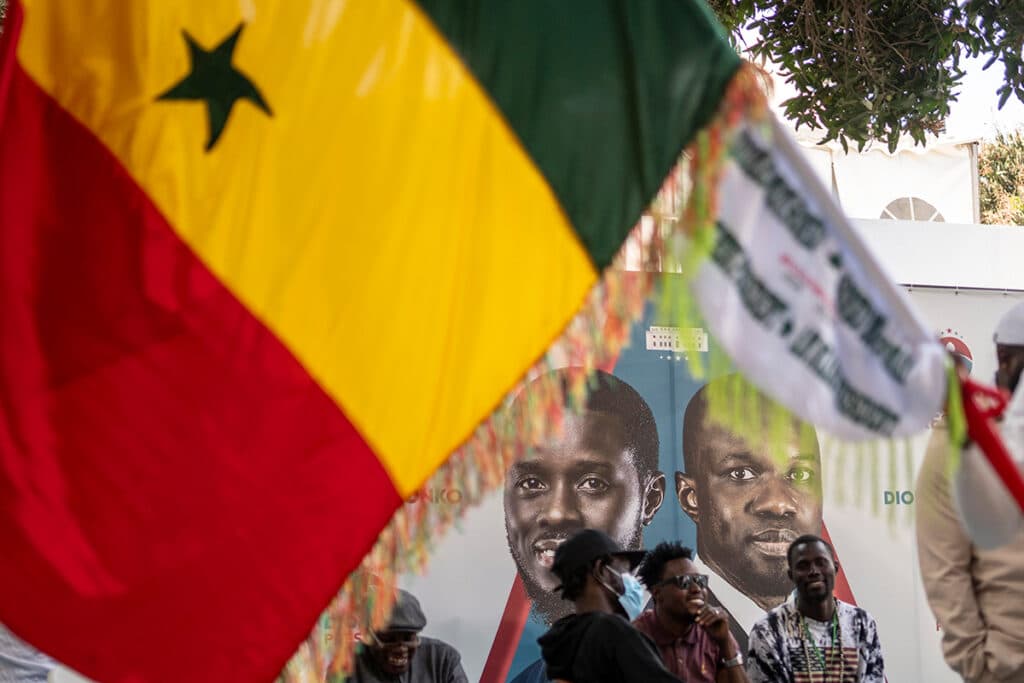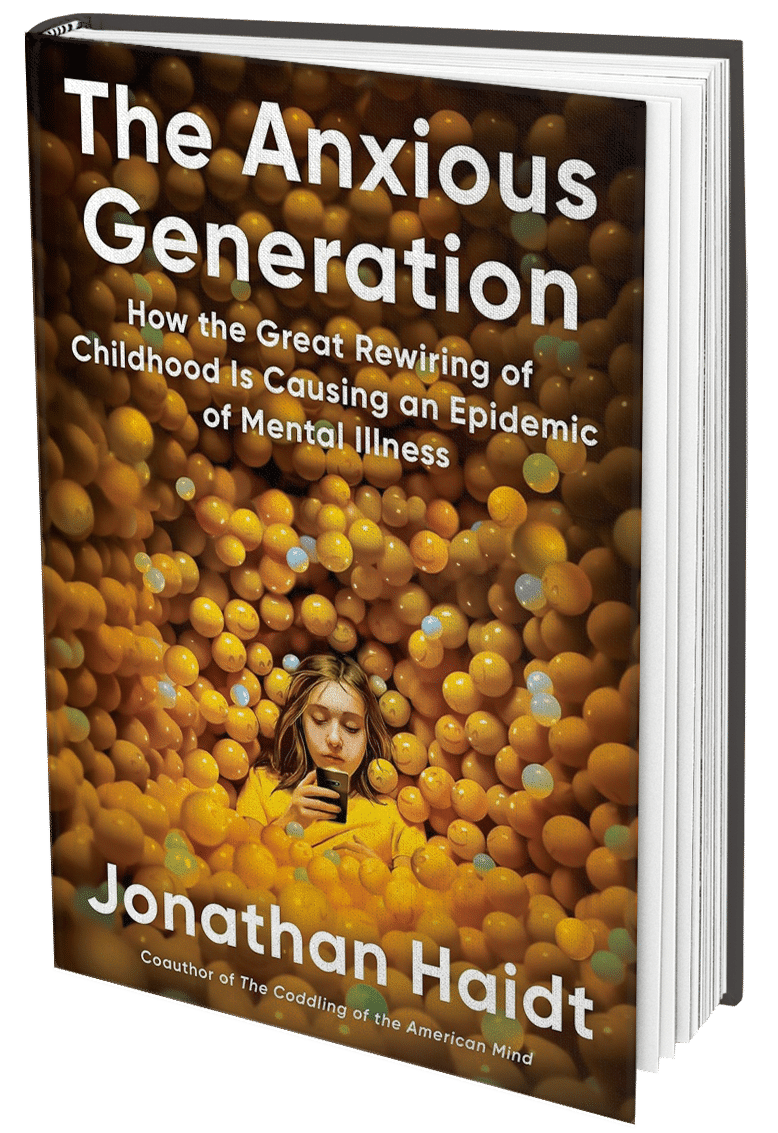Volcanoes are erupting in The Philippines, but on-fire Australia received some welcome rain. The Iran war cries have been called off and The Donald’s military powers are about to be hamstrung by the Senate. Meanwhile, his impeachment trial is starting, and we’re all on Twitter for a front-row seat.
What Could Go Right? Senegal’s U-Turn
The West African country has flipped around a constitutional crisis.
This is our weekly newsletter, What Could Go Right? Sign up here to receive it in your inbox every Thursday at 5am ET. You can read past issues here.

Senegal’s U-Turn
Last month, The Guardian ran an article titled “Is democracy dying in Africa? Senegal’s slide into chaos bodes ill in a year of key elections.”
Senegal had just been rocked by mass protests after Macky Sall, whose second and final term as president was due to end in April, postponed a presidential election scheduled for the end of February by 10 months. (Imagine what would happen if Joe Biden postponed the upcoming November election until the following September.) It was the first election postponement in the country’s history.
Protestors lit stores, cars, and other property on fire. The police met them with tear gas and rubber bullets, killing three, including a 16-year-old boy. In response, the government temporarily shut down mobile access to the internet as well as cut the signal of a major independent TV network that was broadcasting footage of the protests.
The February protests were only the latest reaction to President Sall’s flirtation with an illegal third term. Since 2019, Sall had jailed hundreds of political opponents, including major presidential rivals such as Ousmane Sonko, who was arrested and found guilty of libel after he alleged that Senegal’s tourism minister had stolen millions from a government agency. The libel charge was only the latest in a string of charges against him—including a rape charge that he was cleared of—that Sall’s critics say were trumped up to prevent Sonko from running.
These developments were especially concerning given that Senegal’s democracy bona fides are a rarity in the region. Since its independence from France in 1960, Senegal has seen only peaceful transfers of power, unlike its neighbors in the “coup belt,” a stretch of countries across Africa where coup d’états and coup attempts are frequent.
In mid-February, Senegal’s top court ruled that a presidential election must occur before April, when Sall’s term was set to end, setting up a potential fight over executive versus judicial legitimacy.
The world was spooked. The Africa Center for Strategic Studies called Senegal’s precarious position a “constitutional crisis that will test its democratic institutions.” Others called Sall’s actions a “constitutional coup.” The Guardian asked, perhaps hyperbolically, if democracy was dying on the continent.
Then the unexpected happened.
On March 6, President Sall dissolved his cabinet and set a new date for the elections. This past Sunday, March 24, they occurred, reportedly smoothly and with high voter turnout. Yesterday, provisional official results were announced.
The winner is Bassirou Diomaye Faye, released from jail just 10 days prior to the election, where he had been on charges of inciting an insurrection and criticizing the judicial procedure of Sonko’s trial (the politician imprisoned for accusing the tourism minister of theft). Amadou Ba, the candidate of the incumbent party, peacefully conceded on Monday, based on earlier vote counts that showed Faye in the lead.
“We’re delighted, there was no violence here, serenity is the order of the day,” a young Senegalese woman told France24. The outlet reported that revelers danced and set off fireworks in celebration.
Faye is of the same political party as Sonko and was chosen by him to be the party’s candidate since Sonko was still barred from running after his libel conviction. The 44-year-old Faye is a former tax inspector—as are Sonko and Ba—whose platform and reputation have earned him the moniker “Mr. Clean.” His win represents the first time a left-of-center party has been in power in Senegal since 2000. He is also Africa’s youngest elected president.
He has a lot at the top of his list, including job creation for the nation’s large youth population and dropping the Central African franc as currency.
Senegal’s democratic institutions have been tested mightily, but they have emerged intact. It’s doubtful many articles will be written saying that this bodes well for the rest of what has been called the “mother of all election years,” when more people will go to the polls than any time in history.
Nor should they be, really. No one has a crystal ball. The election of opposition candidates is usually a sign of a functioning democracy. Then again, Macky Sall himself was an opposition candidate when he was elected in 2012, and look what happened ten years later.
But the unknowability of the future means that sometimes good surprises happen, too, and we would be remiss not to recognize them when they do.
By the Numbers
2.5M: The acreage of Oregon’s newly certified dark sky sanctuary, the world’s largest, where you can see the stars without light pollution.
12%: The growth in real wages of low-wage US workers between 2019 and 2023, a stark reversal in trends.
77.5: The life expectancy of people born in the US in 2022, an uptick from the previous year but not at 2019 levels, when life expectancy was 78.8. Life expectancy was driven down by the Covid-19 pandemic as well as drug overdoses, which have leveled off.
Quick Hits
🗳️ In early February we covered how US elections have gotten more secure over time. It has also become easier to vote, with many more states allowing early and mail-in voting.
🐖 In China, researchers successfully transplanted a genetically engineered pig liver into a man for the first time. The recipient was clinically dead, but the procedure was a test step to see whether pig organs could be used for transplants in the future. Pig hearts and kidneys have also recently been tested, the former into two living patients.
🫁 A patient in Korea was the first to receive a 3D-printed organ, a windpipe partially created with another person’s stem cells. She is currently in recovery from the surgery.
🧬 An Indian biotechnology company has started to produce CAR-T cell therapy, which is used to treat blood cancers in the US but is prohibitively expensive for many, at a tenth of the cost of current treatment protocols. This will spur access to the technology in poorer countries.
📉 Preliminary data from the FBI point to a widespread decline in crime in 2023. That includes a potential double-digit decline in murder, as well as declines in violent and property crime.
📈 A new working paper from the Federal Reserve System found that each of the past four generations of Americans (Millennials, Silent Generation, Baby Boomers, and Generation X) was better off than the previous one.
🏷️ Two breakthrough sickle cell therapies that the FDA approved last year have costs that run in the millions. Medicaid is in negotiations with the therapies’ producers so that low-income patients can have access to them, too. Federal estimates indicate that 50–60 percent of sickle cell disease patients are on Medicaid.
🏭 Mac and cheese is getting decarbonized. More specifically, its production process, with $6 billion in funding just announced to lighten the carbon footprint of various industry facilities, including cement, concrete, iron, and steel plants, as well as food production. The various projects will serve as “proof of concept” for decarbonizing heavy industries.=
🇯🇵 Governmental policies in Japan designed to bring women into the workforce have worked even better than anticipated: roughly three million have joined the labor market in the last decade, bringing female workforce participation to 83 percent. (NYT $)
👀 What we’re watching: A bipartisan bill was introduced in the US House of Representatives last week that would require AI-created media to be identified with a digital watermark or metadata, and then labeled by platforms such as TikTok or YouTube.
+ Lawmakers in the Gambia have postponed their decision to overturn a ban on female genital mutilation.
💡 Editor’s pick: Why can’t we stop thinking about the apocalypse?
TPN Member Originals
(Who are our Members? Get to know them.)
- The case against TikTok is thin at best | FP ($) | Zachary Karabell
- Special Cold War freak-out issue | Nonzero | Robert Wright
 How to free the anxious generation | The Joe Rogan Experience | Jonathan Haidt
How to free the anxious generation | The Joe Rogan Experience | Jonathan Haidt- It’s the right time for austerity | Slow Boring | Matthew Yglesias
- Starbucks is negotiating with its unionized workers. Here’s why this is good news for America | Forbes | Roy Bahat
- The greatest energy boom you’ve never heard of | GZERO | Ian Bremmer
- Report: The state of moral leadership in business | HOW Institute | Dov Seidman
- The SCOTUS social media case | Tangle | Isaac Saul
- Reversing the global fertility collapse: Tech progress might be the only answer | Faster, Please! | James Pethokoukis
- Whatever you do, don’t do the silent treatment | The Atlantic ($) | Arthur C. Brooks
- How to save liberalism from Russia, China, and the West | WaPo ($) | Fareed Zakaria
- Imagining a different war in Gaza | NYT ($) | David Brooks
New Book Alert
After more than a decade of stability or improvement, the mental health of adolescents plunged in the early 2010s. Rates of depression, anxiety, self-harm, and suicide rose sharply, more than doubling on most measures. Why?
In The Anxious Generation, social psychologist and TPN Member Jonathan Haidt lays out the facts about the epidemic of teen mental illness that hit many countries at the same time. Most important, Haidt issues a clear call to action. He diagnoses the “collective action problems” that trap us, and then proposes four simple rules that might set us free. He describes steps that parents, teachers, schools, tech companies, and governments can take to end the epidemic of mental illness and restore a more humane childhood.
Learn more about the book and buy it here.




[…] Læs mere her og her. […]